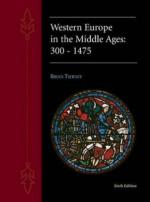|
This section contains 844 words (approx. 3 pages at 300 words per page) |

|
Increased Autonomy. The freedom to choose one's spouse was closely related to the consensual theory of marriage and the principle that clandestine marriages, although illegal, were valid. The impediment of coercion was a logical extension of the doctrine that marriage required only the freely given consent of the couple. Forced consent through threats to kill or injure them or members of their families could hardly be considered free consent to marry. Consequently, the promotion by the Church of consensual marriage gave increased autonomy to individuals who had hitherto been little more than pawns in dynastic, economic, or political negotiations.
An Unwilling Bride. In his Decretum (circa 1140), Gratian recorded a case that had been referred to Urban II, who was Pope from 1088 until 1099, for resolution. Jourdain I, the ruler of Capua, had been compelled to give his daughter in marriage to...
|
This section contains 844 words (approx. 3 pages at 300 words per page) |

|




